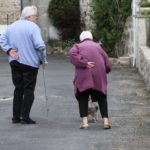As the population ages, more families are turning to senior care facilities to provide for their loved ones. While many facilities offer compassionate and quality care, instances of neglect remain a serious concern. When our most vulnerable citizens are placed in environments meant to protect them, any sign of abuse or negligence demands immediate attention. Understanding the signs of neglect, knowing your legal options, and learning how to support caregivers are essential steps toward ensuring the well-being of seniors in these facilities.
Understanding Neglect in Senior Care Settings
Neglect in senior care facilities refers to the failure of staff or management to provide residents with the necessary care, resulting in harm or increased risk. This form of mistreatment is often passive but can be just as damaging as physical abuse.
Common Forms of Neglect
Neglect can take many forms, including:
- Medical Neglect: Failure to provide adequate medical care or timely responses to health concerns.
- Hygiene Neglect: Ignoring basic grooming and cleanliness needs.
- Nutritional Neglect: Withholding or not providing proper meals and hydration.
- Emotional Neglect: Isolating residents or failing to engage them socially.
- Environmental Neglect: Unsafe or unsanitary living conditions, such as poor lighting or broken fixtures.
Recognizing the Warning Signs
Being able to identify signs of neglect is critical. Some red flags include:
- Unexplained weight loss
- Poor hygiene or dirty clothing
- Bedsores or untreated medical conditions
- Emotional withdrawal or depression
- Frequent falls or injuries
Loved ones who visit regularly are often the first to notice these warning signs. Keeping a close watch on both the physical and emotional health of a senior can prevent prolonged suffering.
Legal Protections for the Elderly
There are legal frameworks in place to protect seniors from neglect. Both federal and state regulations mandate a standard of care, and facilities found in violation may face civil penalties, loss of licensing, or lawsuits.
Understanding Your Legal Rights
If a loved one is being neglected, families have the right to:
- File a formal complaint with the appropriate state health department
- Request an investigation into the facility
- Seek relocation for the resident to a safer environment
- Pursue legal action to hold the facility accountable
In serious cases, families may turn to a nursing home abuse lawyer in Los Angeles who specializes in these matters. These professionals understand how to build strong cases that address systemic negligence, obtain justice for the victim, and prevent future harm to other residents.
Taking Action: What Families Can Do
Taking immediate action is vital to stopping neglect. Start by documenting everything — photos of injuries, written accounts of changes in behavior, and communication with staff.
Step-by-Step Response to Suspected Neglect
- Talk to the Facility Management: Raise concerns directly with the administration and ask for a written response.
- Report to Authorities: File a complaint with the state’s department of health or adult protective services.
- Seek Medical Attention: Ensure your loved one receives a proper medical evaluation to document any harm.
- Consult Legal Counsel: If you suspect negligence is ongoing or severe, legal advice can help determine the best course of action.
- Find a Better Alternative: In some cases, relocation to a safer, more responsive care facility may be necessary.
The Role of Caregivers and Advocacy
Caregivers, both family members and professional aides, often bear the emotional and physical burden of protecting seniors. Supporting these individuals is an essential part of the broader fight against neglect.
Easing the Burden of Family Caregivers
When a loved one is in a care facility, family members still often act as advocates, coordinators, and monitors. The emotional toll can be significant. Learning ways to support caregivers is critical to sustaining their ability to help. Resources like this guide on easing the stress and burden of family caregivers offer practical advice for managing stress and promoting balance.
Becoming an Advocate for Change
Families can also become community advocates by:
- Participating in facility boards or family councils
- Working with elder advocacy organizations
- Raising awareness about elder neglect in local forums or through social media
- Supporting legislation that enhances inspection and oversight of long-term care facilities
Legal Support and Resources
Finding the right legal support is crucial when addressing nursing home neglect. Resources like legal directories provide representation for those facing abuse and negligence in care facilities.
Additionally, understanding the broader legal context can empower families. For a general overview, FindLaw’s guide to nursing home abuse outlines the types of abuse, legal remedies, and how to proceed with a claim.
Preventing Neglect Before It Happens
Proactive steps are the best defense against elder neglect. Before placing a loved one in a senior care facility, research thoroughly:
- Check Facility Ratings: Review inspection reports and rankings by Medicare or your state’s health department.
- Visit Unannounced: See how the facility operates without scheduled tours.
- Ask Questions: Inquire about staff training, resident-to-staff ratios, and how medical issues are handled.
- Talk to Residents: Gain insight into daily life and satisfaction levels from current residents or their families.
Family involvement after placement is also critical. Regular visits and communication with staff can help identify problems early and ensure a higher standard of care.
Conclusion
Neglect in senior care facilities is an issue that cannot be ignored. Whether it’s due to understaffing, poor management, or systemic failures, the impact on elderly residents can be devastating. Families, caregivers, and legal advocates all play a vital role in identifying abuse, seeking justice, and pushing for higher standards of care. By staying informed, taking action, and supporting each other, we can create safer, more compassionate environments for our aging loved ones.





